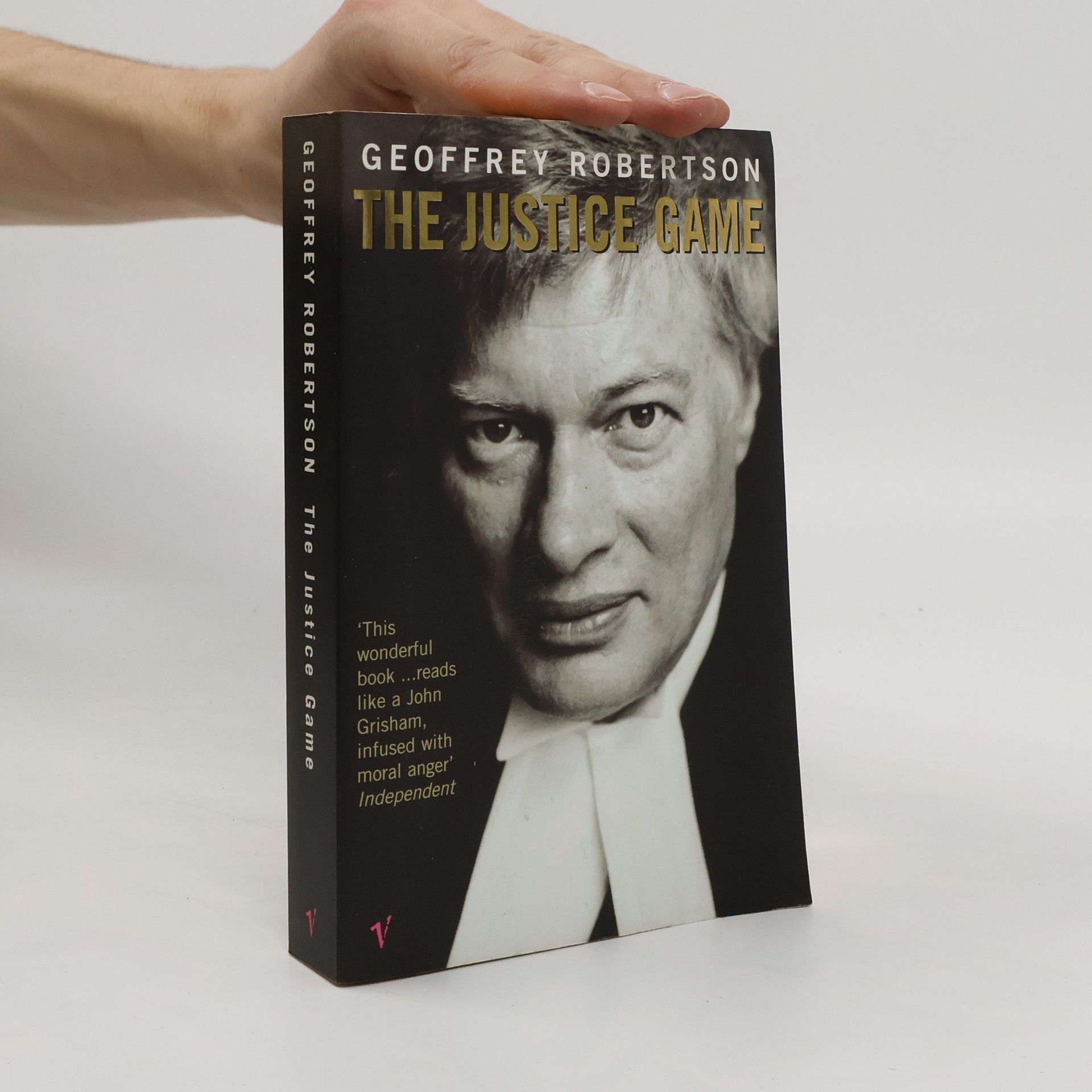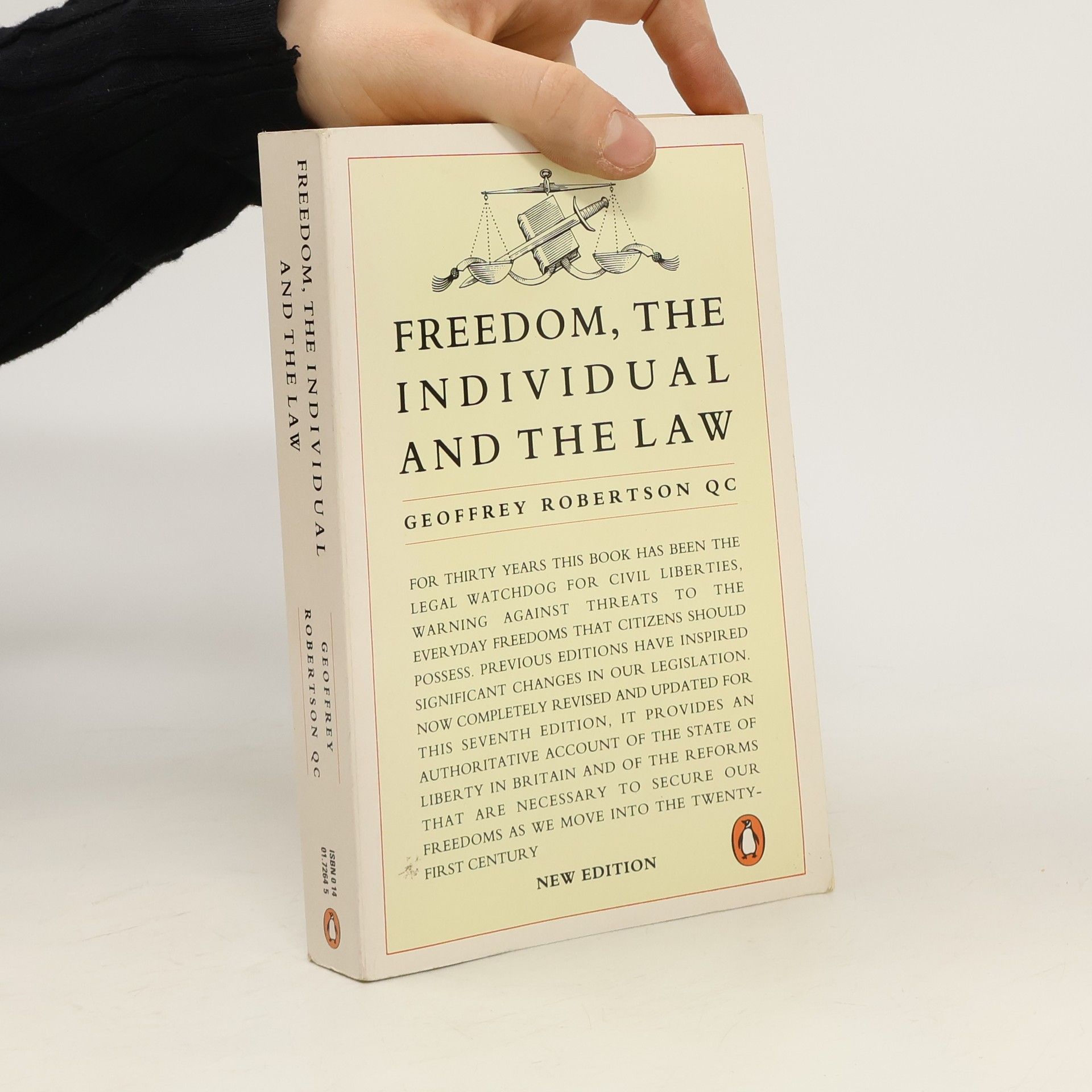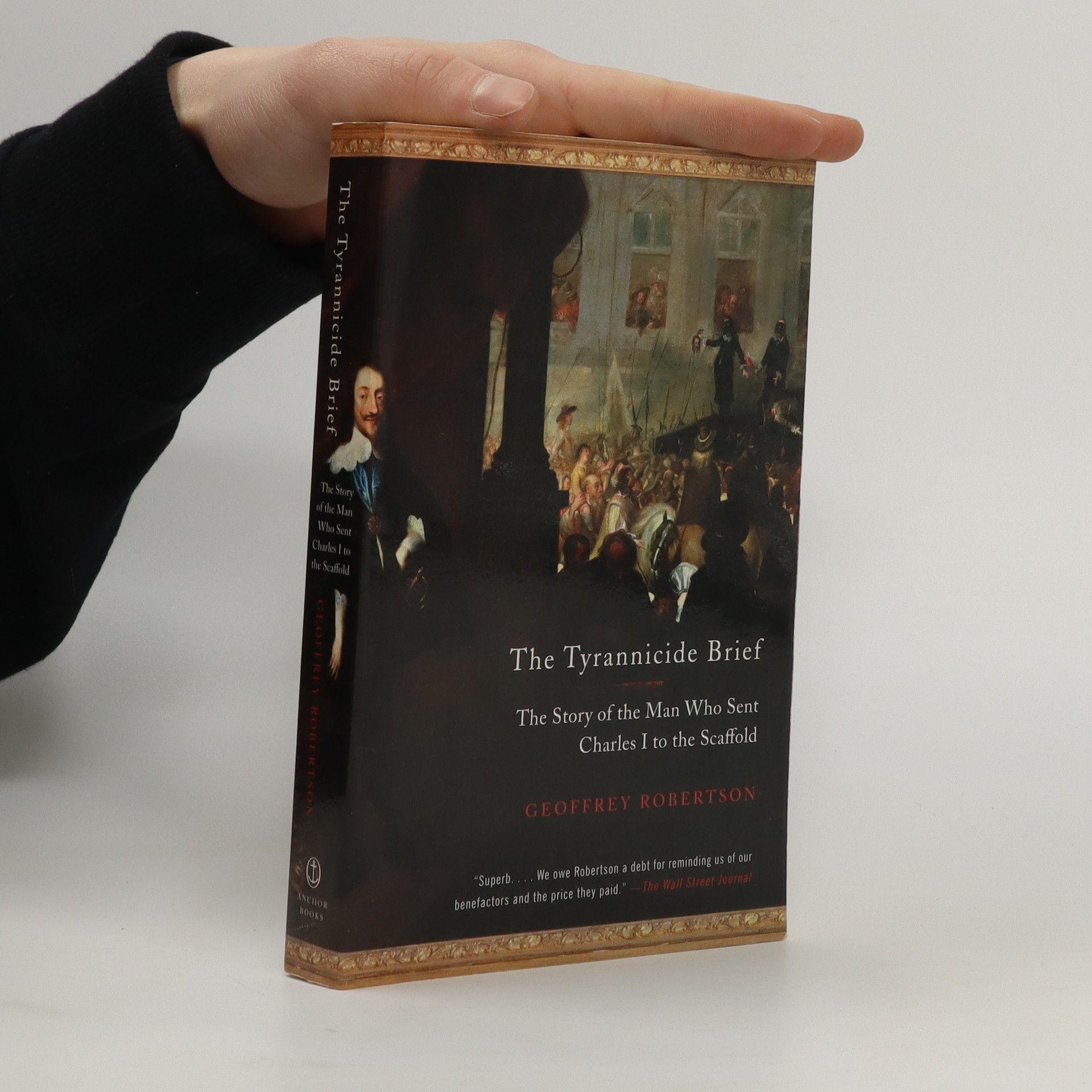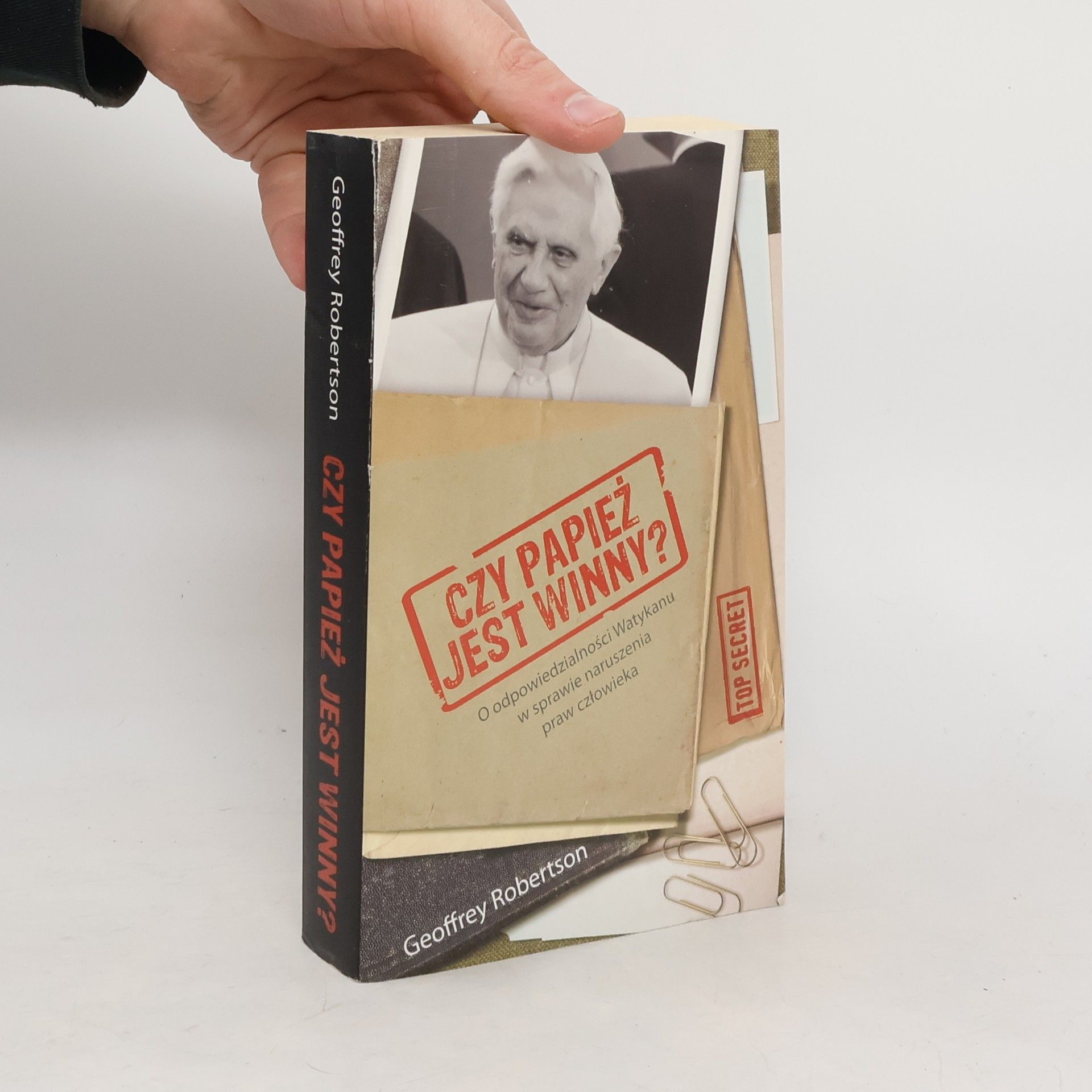This comprehensive exploration of human rights law delves into its fundamental principles, historical development, and contemporary challenges. The updated edition includes a new chapter that addresses the pressing issue of war crimes in Ukraine, reflecting the current geopolitical landscape. It serves as an essential resource for understanding the legal frameworks that protect human rights globally and the ongoing struggles against violations in various contexts.
Geoffrey Robertson Livres
Geoffrey Robertson est un avocat et auteur de renom, réputé pour son travail dans le domaine des droits de l'homme. Son écriture explore des questions éthiques et juridiques critiques, mettant l'accent sur la justice et la responsabilité. L'approche de Robertson se caractérise par une analyse juridique pointue et un engagement inébranlable en faveur des droits. Par ses recherches et son discours public, il vise à éduquer et à inspirer une plus grande conscience des enjeux de justice mondiale.






The Tyrannicide Brief
- 464pages
- 17 heures de lecture
Charles I waged civil wars that cost one in ten Englishmen their lives. But in 1649 Parliament was hard put to find a lawyer with the skill and daring to prosecute a king who claimed to be above the law. In the end, they chose the radical lawyer John Cooke, whose Puritan conscience, political vision, and love of civil liberties gave him the courage to bring the king to trial. As a result, Charles I was beheaded, but eleven years later Cooke himself was arrested, tried, and executed at the hands of Charles II. Geoffrey Robertson, a renowned human rights lawyer, provides a vivid new reading of the tumultuous Civil War years, exposing long-hidden truths: that the king was guilty, that his execution was necessary to establish the sovereignty of Parliament, that the regicide trials were rigged and their victims should be seen as national heroes. Cooke’s trial of Charles I, the first trial of a head of state for waging war on his own people, became a forerunner of the trials of Augusto Pinochet, Slobodan Milosevic, and Saddam Hussein. The Tyrannicide Brief is a superb work of history that casts a revelatory light on some of the most important issues of our time.
Freedom, the Individual and the Law
- 608pages
- 22 heures de lecture
Individual freedom is coming under more complicated and sophisticated threats, which only the law can combat. This book analyzes all the human-rights issues of the moment, such as media invasions of privacy, miscarriages of justice, the Runciman Royal Commission and euthanasia.
The Justice Game
- 448pages
- 16 heures de lecture
Geoffrey Robertson's memoirs provide an engaging glimpse into the life of a prominent barrister, showcasing his experiences with a diverse range of high-profile clients, including John Stonehouse and Salman Rushdie. Known for his fluent and witty writing style, Robertson shares captivating anecdotes that highlight the intricacies of legal battles and the colorful personalities he has encountered throughout his career.
Lawfare
- 128pages
- 5 heures de lecture
Exploring the intricate dynamics of free speech in Russia, this book delves into the strategies employed by the wealthy elite and government to suppress dissenting voices. It examines the impact of censorship and propaganda on public discourse, while also offering insights into grassroots movements and potential solutions to reclaim freedom of expression. Through a blend of analysis and practical recommendations, the narrative highlights the importance of resilience in the face of systemic oppression.
The book explores the effectiveness of local Magnitsky laws in addressing human rights violations amidst the decline of international criminal law. It argues that these laws serve as a crucial tool for the global justice movement, enabling the identification and condemnation of perpetrators. By focusing on this legal framework, the author highlights a proactive approach to holding violators accountable and fostering accountability on a global scale.
The Trial of Vladimir Putin
- 224pages
- 8 heures de lecture
Focusing on international law, the book provides a compelling analysis of an unjust war, emphasizing the necessity of accountability for leaders like Putin. It argues that the stability of democracy is at stake unless such figures face consequences for their actions, presenting a thought-provoking perspective on justice and governance in the context of global conflict.
Czy Papież jest winny?
- 424pages
- 15 heures de lecture
